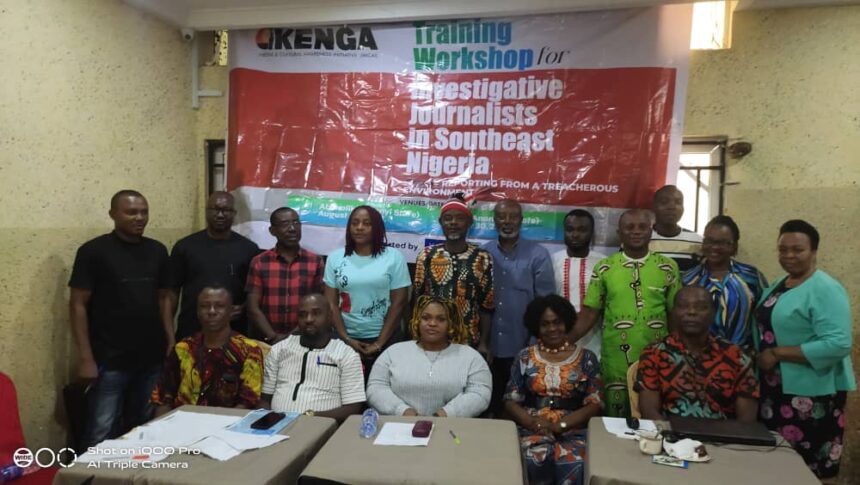Maduako Igbokwe I Friday, Sept.01, 2023
AWKA, Nigeria – Former Dean, Faculty of Social Sciences, Nnamdi Azikiwe University Awka, Anambra State, Prof Stella Okunna has disclosed that fact checking of stories has become a critical component to the practice of journalism in the country.
Your also like RUSH TO SAUDI ARABIA BY SUPERSTARS OF FOOTBALL
According to her, any person who writes without fact checking his stories has no business in the profession.
Prof. Okunna who was a former Head of Department, Mass Communication, Nnamdi Azikiwe University stated this on Wednesday at Ikenga online training workshop for investigative journalists in South East in Awka, Anambra state.
The theme of the training was titled, “Ikenga Media and Cultural Awareness Initiative( IMCAI) Training for Journalists on reporting in a treacherous and incurred environment”.
The one day training was supported by MacArthur Foundation and facilitated by Wole Soyinka Investigative Journalism.
She said that fact checking of stories has become important with the way things are going in Nigeria.
According to her, people can no longer create news without first fact checking their stories, noting that any person without first fact checking his stories has no business being in the business of journalism.
” Every journalist must fact check his stories before publishing. Don’t take anything for granted and if you can not fact-check your stories , look for another thing to do. Fact checking has become very critical and important ingredient in the practice of journalism” she said .
Speaking on ethical issues: what kind of news is news, the Coordinator, Ikenga Media & Cultural Awareness Initiative, Dr Chido Onumah and his colleague, Mr Uzor Maxim Uzoatu, described investigative journalism as hallmark of societal development.
They argued that upholding the ethics of journalism profession was needed to excel in the industry.
Earlier, the Editor-in-Chief of Ikenga online, Mr Uche Ugboajah, explained that the medium established in 2022 was positioned to give voice to the South East.
He added that the training was part of their plans to build the capacity of journalists in the zone, thereby helping in promoting good governance, gender equality, inclusion of people living with disabilities, among others.
